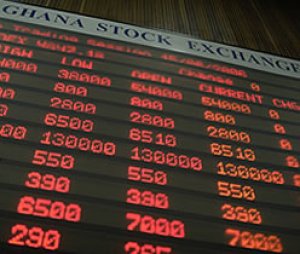Stakeholders of the capital market must work harder with government to sustain the enabling environment to boost the future growth of the Ghana Stock Exchange, Dr Sam Mensah, Chairman of the Ghana Stock Exchange Council, has said.
Delivering a lecture to mark the 25th anniversary of the GSE in Accra, Dr Mensah said the current high interest rate environment had undermined the growth of the equity market as investible funds had moved out to alternative instruments such as fixed deposits.
Besides, recent developments, especially the provisions of the 2015 Income Tax Act (Act 896) that abolished incentives for the capital market, showed that stakeholders could no longer take the enabling environment for granted.
“We have noted earlier that the GSE as we see it today is really a development partnership with government. Unfortunately, recent developments indicate that we cannot take government support for granted,” he said.
He said the imposition of a capital gains tax would make Ghana Stock Exchange the only market in the region that has a capital gains tax on listed securities, adding that the move would deal a competitive blow to the GSE.
“We about to see foreign investors flee Ghana’s equity markets,” he warned.
Dr Mensah also cited the removal of tax exemptions for the Ghana Stock Exchange and those for mutual funds and unit trusts as some of the incentives that has been taken away.
He said the GSE has chalked so much success since its inception and can now boast of 38 listed equities, 21 licensed dealing members, 97 government bonds, a fully automated trading system, a central securities depository, among others.
However, he said despite these achievements, the GSE was confronted with many challenges, including low liquidity which as measured by the market turnover ratio was well below key African markets such as Botswana, Nigeria, Kenya and South Africa.
“Low liquidity increases volatility thus creating additional risk for investors. If there are many potential buyers and sellers and they can transact quickly, easily and cheaply, then the price movements tend to be smoother as news events are factored into prices quickly based on the market consensus about their significance.”
He said the high volatility of the market is reflected in the fact that over the five-year period 2011 and 2015, returns on the GSE Composite Index ranged between 78.81 per cent in 2013 and -12.69 per cent in 2015, adding such volatility drives away investors.
Also, the limited number of listings is a challenge. Since its inception, the GSE has gone from 11 listings to 38 listed companies, an average of one new listing every year.
Ms Abena Amoah, an investment banker with Baobab Advisors, said everything must be done to make the Ghana Stock Exchange attractive to both local and foreign investors.
She said efforts must be made to increase the number of listed companies on the bourse, introduce new instruments and deal with the negative economic fundamentals as well as create an enabling environment for the market to thrive.
Ms Amoah said the new taxes would erode the gains of investors and drive them away from the market, which last year did not perform well because of the depreciation of the cedi and the economic challenges.
Ms Amoah said the capital gains tax might add to the unattractiveness of the Ghanaian market.
“In any case, the Ghana market is the least attractive of the three major markets in the sub-region, because we are not as liquid as the other markets and we have fewer companies listed in comparison. That means we are driving them away,” she added.
Mrs Mona Quartey, Deputy Finance Minister, pledged government’s readiness to discuss with stakeholders in the market on the way forward, adding, that government needed to raise revenue to narrow the deficits and reduce borrowing.
Mrs Quartey said although government aimed to create an enabling environment for the stock exchange; efforts to deal with the disturbing macro-economic situation might affect other parts of the economy, including the stock exchange.
“We have listened, we will discuss and review it and see what we can do about it - but government will always put in place policies to make the stock exchange grow, because that is another source of funding outside borrowing from the banks,” she said.
Business News of Friday, 15 January 2016
Source: GNA
Stakeholders, gov’t need to dialogue on stock exchange dev’t
Entertainment












